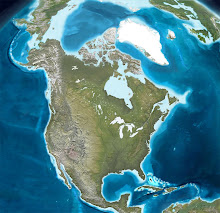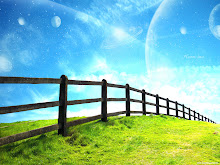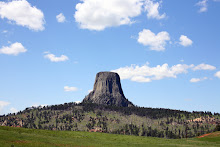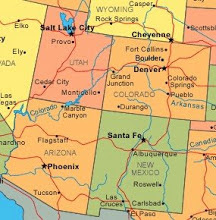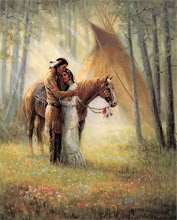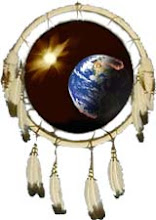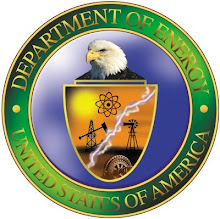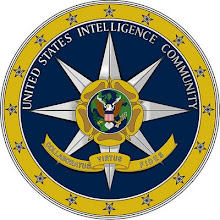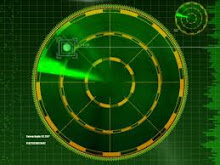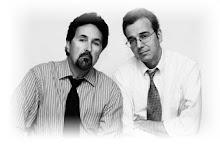By Steve Hammons
Many Americans have Cherokee DNA within their genetic makeup.
Some families are aware this, some people have heard rumors or stories from family members and some are totally unaware of it. Did great-great-great-grandma really have a Cherokee parent?
There may be many more Americans with Cherokee DNA in them than of other tribes. This is because Cherokees began intermixing with Anglo, Scottish and Scots-Irish explorers, hunters and trappers in the Appalachian region at an early phase in American history – much of it in the early- and mid-1700s.
This created a wide dissemination of Cherokee DNA into many American family trees.
Socially and culturally, many of these developments in the 1700s occurred before some of the more widespread efforts at domination, removal and near-genocide of Native American people later on, though these elements were well underway even in colonial times.
By the time of the infamous forced removal called the Trail of Tears in 1838-39, there were already several generations of mixed-ethnicity families living in the Cherokee mountain regions of what we now call North Carolina, Tennessee and surrounding areas that now include the current states of Kentucky, West Virginia, Virginia, South Carolina, Georgia and Alabama. Many had Scottish or Anglo names, lighter skin and prosperous farms.
Prior to the Trail of Tears, many Cherokee had headed west to Arkansas and elsewhere. Many were able to avoid detention and removal, and stayed in the Appalachian region where the federally-recognized Eastern Band of Cherokee Indians is still located at the Tennessee and North Carolina border.
Because of the mixed ethnicity and, in many cases, Anglo or Scottish names, some of these people could “pass as white." And many may have chosen to do so in order to stay near their home region, or even as they moved west.
WHO ARE WE?
As we know, over the decades and centuries, people from many nations and cultures have arrived North America. The mixing of different ethnic groups here has been a fact of life for generations. Many of us can count at least a half-dozen or more different nationalities and ethnic groups in our family background.
And the more this blending has continued with each generation, the more likely that Cherokee or other Indian DNA is within many of today's American families.
Many don’t know about a Cherokee or Native American ancestor because that side of the family sometimes may not have detailed written records. Maybe relatives didn’t want to talk about “the Indian in the family” or the connection was forgotten or overlooked.
Today, some tribes use what is called the “blood quantum” to identify who has enough Indian “blood” in them to be official tribal members. Often, one-sixteenth blood quantum will qualify a person for official tribal membership.
So, if grandparents, great-grandparents or great-great-grandparents had some significant measure of Indian blood, based in these blood quantum measurements, a person can or cannot be considered a tribal member
To say that someone who is one-eighth is more Cherokee or Native American than a person who is one-sixteenth makes us wonder about the validity of looking at this in terms of mathematical fractions and percentages.
Most likely, a certain genetic background does not affect a person strictly by percentages. If you are one-quarter, one-eighth, one-sixteenth, one-thirty-second, one-sixty-fourth, does that mean the genetic history within you, which goes back into the ancient past, is not valid?
The idea of racial “blood” is, of course, outdated. We now know that our genes and our DNA helix are within every cell of our bodies. We are just scratching the surface of learning what is contained within them and how they function.
The genetic history of our ancestors is passed down over the centuries. It comes together in a child in certain ways, creating certain physical characteristics, and, we suspect, possibly psychological and personality tendencies.
The DNA within each cell of our bodies might act in ways we do not fully understand.
Does having a great-great-great-grandmother or -grandfather who was Cherokee instead of full-blood parents make you less Cherokee? In some ways, maybe yes. In other ways, this might not be so clear.
In some people, maybe this forgotten or hidden DNA is it is “sleeping.” For others, they may have always felt there was something in them connected to the ancient times in the Americas. They might even have slightly darker skin, a certain facial or body structure or other genetic traits. This background may manifest itself a little or a lot.
DNA MEMORIES?
Modern research into the nature of DNA has led to discoveries about this material within each cell of our bodies. DNA has important implications for who each one of us is, on many levels.
Once we have identified the various elements of our family tree and our genetic background, and possibly discovered or suspect Cherokee or other Native American connections, what should we make of it?
The DNA within all living things is the blueprint for what each organism becomes, subject to the environmental influences that can also have significant effects. It determines our physical characteristics and even our vulnerabilities to certain diseases.
For humans, recent discoveries about DNA are rapidly changing our views about the importance of this material. DNA may affect us much more significantly than we imagined. And, it may hold keys to further discoveries.
Is it possible that the DNA helix holds some form of important memories of our ancestors? Back in the 1960s, some psychological researchers claimed that there may be keys that unlock our deep DNA, revealing experiences of past generations.
It has been demonstrated that experiences necessary for survival of a species, even very tiny and simple organisms, are learned and that this knowledge is passed on to subsequent generations genetically.
For humans, with our relatively complex brain, feelings and memories, what other kinds of experiences might be saved in our DNA over the many thousands of years when our ancestors were born, lived, survived and died? Do these influences manifest themselves within us? And how?
Scientists are gradually uncovering the secrets of our DNA. They have mapped much of the DNA helix of not only humans, but other animals and plants. Many human genes remain a mystery and their purpose is unknown.
The idea that deep and ancient memories of our ancestors lie within our own bodies, within our DNA, seems far-fetched. Yet, in the field of genetics research there seems to be so much that is not known that, for an open-minded person, these kinds of theories about deep DNA memories probably cannot be ruled out.
Maybe it is time to consider the depth of our family trees and all of their complex branches and roots throughout time and the development of the human race. Whether Cherokee or other interesting ethnic backgrounds are deep within us, this certainly seems worth exploring.
In this sense, the official and legal definitions of who is Cherokee or part of some other Native American tribe and who is not become less relevant.
If a child in your family were to ask, “Am I part-Indian?” what would your answer be? Do you know for certain?
To find these answers, we can conduct research through DNA tests, genealogy records, by asking older family members and other kinds of investigation.
We can also listen to the voices of our DNA and our ancient ancestors within us.
(If you liked this article, please see my other recent ones about the Cherokee on the Joint Recon Study Group and Transcendent TV & Media blogs.)
skip to main |
skip to sidebar

In the past 30 days, readers from approximately 40 countries or territories using about 20 languages visited the Joint Recon Study Group site.

To see more articles, scroll down the right-side column.

Steve Hammons

Articles from the Joint Recon Study Group site and Transcendent TV & Media site are included.
The Joint Reconnaissance Study Group is the San Diego-based, combined-service/agency, research-and-activities team in my novels "Mission Into Light" and sequel "Light's Hand." This site contains information of interest to the JRSG.
Home page: Joint Recon Study Group site
Readers from around the world visit this site.

In the past 30 days, readers from approximately 40 countries or territories using about 20 languages visited the Joint Recon Study Group site.
April 2021 threat alert: ‘Force protection’ for our troops now the responsibility of all Americans
First responders must deal with society’s problems, shortcomings, injustices every day
Could some UFOs be linked to Native American 'white stone canoe' legends, stories?
Wildland firefighter basic training available at community colleges, tech schools, training centers
‘Boomer remover’ coronavirus is bigger threat to WWII generation that saved the world
‘Black swan’ events that aren’t: Coronavirus, climate emergency, unidentified aerial phenonema
Reagan’s complete 1987 UN message on ‘alien threat’ overlooked: Grave danger here, now
Was Reagan briefed about UFOs and original ‘Day the Earth Stood Still’ movie?
My military draft lottery number was #165 during final Vietnam War years
“Keep On The Sunny Side,” by The Whites, from movie O Brother, Where Art Thou?”
Living along Ohio River for centuries, Native Shawnee called it ‘Kiskepila Sepe’ – ‘Eagle River’
Native American words around us: States, towns, rivers, lakes, terrain, plants, animals, military
Athens County, Ohio, was key spot when colonists, Redcoats fought Shawnee in 1774 battle
1787 Northwest Ordinance set course for Ohio, Indiana, Illinois, Michigan, Wisconsin, Minnesota
Smallpox-tainted blankets were 1763 bioweapon on northern Appalachian Mountains frontier
Diana Krall performs “Maybe You’ll Be There" live in Paris with Paris Symphony Orchestra 2001.
Books to read in 2021? Novels "Mission Into Light" and the sequel "Light's Hand"
Novel excerpt: Renew, prepare America with ‘Urgent Response Group’ for teens, young adults
Diana Krall performs “I Get Along” live in Paris with Paris Symphony Orchestra 2001.
Steve Tyrell sings “Give Me the Simple Life.”
Diana Krall performs “Love Letters” live in Paris with Paris Symphony Orchestra 2001.
Visit the article archives!

To see more articles, scroll down the right-side column.
Novel "Mission Into Light" overview on Amazon
Novel "Light's Hand" overview on Amazon
Adventures of the Joint Recon Study Group: Overview and synopses of activities and operations
Key chapter overviews: Points of interest in the novel "Mission Into Light"
Key chapter overviews: Points of interest in the novel "Light's Hand"
Multimedia rights available
English and foreign-language book rights, audio book and e-book rights for "Mission Into Light" and "Light's Hand" are available. Movie and TV rights are available.
I'm seeking agent representation for these works and rights.
Please contact Steve Hammons for more information at hammons55@gmail.com.
Feature film screenplay
I completed a feature film screenplay in 2006 based on “Mission Into Light” and “Light’s Hand” combining key elements of both novels.
The screenplay takes audiences into the adventures and discoveries of the Joint Recon Study Group and the relationships among team members, friends and associates as they explore leading-edge research and emerging transcendent developments.
I'm seeking agent representation for this screenplay.
.........................
I also wrote a TV series pilot script based on "Mission Into Light" and "Light's Hand" story. I'm seeking agent representation this script.
About the Author

Steve Hammons
About the Author
I was born and raised in southwestern Ohio near the Kentucky and Indiana borders, then went to college at Ohio University in the southeastern Appalachian region of the state near West Virginia.
I graduated with a dual major in communication (journalism focus) and health education (psychology focus) with a minor in pre-law.
Ohio U. is home to the respected Scripps College of Communication and E.W. Scripps School of Journalism.
I also completed two graduate-level courses in guidance counseling theory and method at Ohio U.'s College of Education, School of Applied Behavioral Sciences and Educational Leadership.
At the end of my undergraduate education at Ohio University, I moved to the beautiful American Southwest where I applied my education, continual training and and ongoing experience to related professional fields such as health care, journalism and special research areas.
My novels "Mission Into Light" and the sequel "Light’s Hand" are available in e-book and 6"x9" paperback from most online booksellers worldwide.
Readers review metaphysical-military-intelligence adventure novel ‘Mission Into Light’
My articles on DoD CultureReady blog, Defense Language and National Security Education Office
Transcendent TV & Media site
Past articles: Scroll down the right-side column for more articles.

Articles from the Joint Recon Study Group site and Transcendent TV & Media site are included.




























